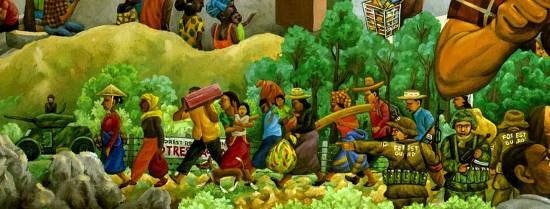How has the land rush reshaped the labour regime in Myanmar and how have these in turn impacted on the land rush? This question is investigated by Doi Ra in this Working Paper produced as part of the Commodity & land rushes and regimes: Reshaping five spheres of global social life research project.
The contemporary land rush in Myanmar peaked in 2008. Even before then, working people had been pushed into economic informality.
In this paper, PhD researcher Doi Ra investigates the consequences of the land rush on working people and how changes in labour dynamics in turn impacted the land rush. She thus aims to understand the implications of the land rush in terms of structural, institutional and political transformations in society.

Social impacts of the land rush in Myanmar
She argues that although land grabs seemed to plateau after their peak in 2008, the social implications are as yet insufficiently studied.
The over-emphasis on land for economic reproduction negates the social and political effects of land grabs leading to a 'fragmentation of classes of labour' with working people no longer able to receive a living wage.
Doi Ra
- PhD student
- Related links
- Land rush Working Papers & Notes
Commodity & land rushes and regimes research project

